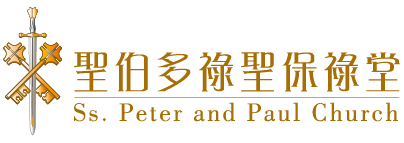During the mission in Philippi, Paul’s first stop in Europe, he freed a slave girl, occupied with an oracular spirit, with exorcism. (Acts 16:18) But due to the fury of the slave girl’s owners, Paul and Silas created a public disturbance, and were arrested, beaten, and thrown into jail together, but was released miraculously, and even converted the jailer and his household. (Acts 16:19-40). From the “Epistle to the Philippians”, we know that their missionary work had been quite successful there. During his stay in Philippi, Paul was lodging at Lydia’s home for a few months until he accomplished his Philippian mission. This was the birth of the first Domus Ecclesia (house church). Indeed it had been a fruitful period for Paul, as he had established a number of vibrant communities, which were Paul’s mostly much-loved and memorable communities, and he also received tremendous returns from them. When Paul was in desperate need, he only accepted subsidies from these communities. (Phil 4:18).
Then, they continued their mission to Thessalonica and Beroea. Upon Paul’s arrival to Corinth, Paul consecutively wrote two letters to the church in Thessalonica, capital of the province of Macedonia. The two Thessalonians letters are the earliest extant Pauline correspondences preserved nowadays, which are also among the earliest works of the twenty-seven volumes of the New Testament, written approximately twenty years after the Ascension of Jesus. After Timothy visited the church in Thessalonica, he then returned to Corinth to report to Paul (1 Thes 3:6). Paul sequentially wrote them a letter, which is what we refer to as the “First Epistle to the Thessalonians”. In this letter, other than Timothy bringing good news from Thessalonica, criticism to Paul from some Thessalonians was also mentioned, in which Paul responded in defending himself (1 Thes 2:1-12); Paul also concerned about their moral life (1 Thes 4:3-8), and assured them the Second Coming of the Lord (1 Thes 5:2). Shortly after the first letter was sent out, while Paul was concentrating on the missionary work in Corinth, he overheard that some people in the church of Thessalonica misinterpreted the meaning of the Second Coming of the Lord. Paul then immediately wrote another letter to them, which is what we refer to as the “Second Epistle to the Thessalonians.” In his second letter, Paul criticized those who did nothing while waiting for the coming of the Lord, and those who minded other people’s business more then their own, and issued an order to them, “if anyone was unwilling to work, neither should that one eat.” (2 Thes 3:10)
From the first and second verses of chapter three of the First Epistle to the Thessalonians, we know that Timothy gathered with Paul in Athens, and was later sent by Paul to Thessalonica. At that time, the influence of Neo-Platonism caused Athenians to ridicule the subjects of Paul’s proclamations, namely Jesus’ resurrection and the gospel of salvation (Acts 17:32-33). Therefore Paul’s mission to Athens was soon pronounced failure, and a disappointment to Paul.
